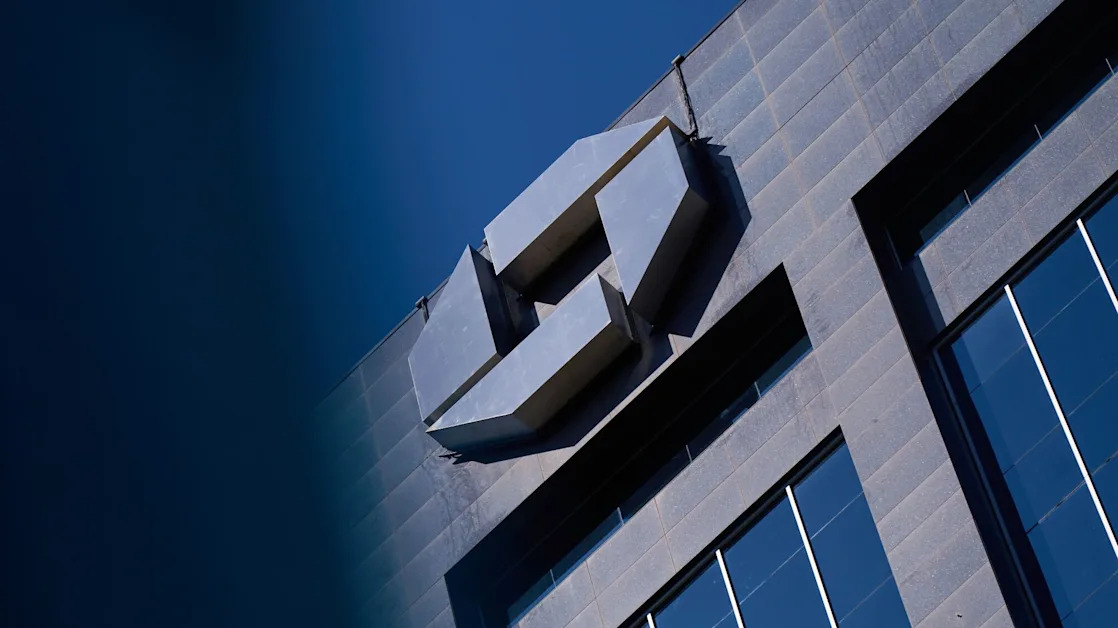(Bloomberg) -- JPMorgan Chase & Co.’s stock traders took in a record haul in the first quarter, boosted by chaotic market moves set off by President Donald Trump’s policy announcements after he took office in January.
The biggest US bank boosted equities markets revenue 48% to $3.81 billion, trouncing analysts’ expectations as well as the firm’s previous stock-trading record set four years ago. Still, Chief Executive Officer Jamie Dimon struck a cautious tone about prospects for the US economy in a statement Friday accompanying the results.
“The economy is facing considerable turbulence (including geopolitics), with the potential positives of tax reform and deregulation and the potential negatives of tariffs and ‘trade wars,’ ongoing sticky inflation, high fiscal deficits and still rather high asset prices and volatility,” Dimon said in the statement.
Follow The Big Take daily podcast wherever you listen.
The biggest US bank added $973 million to the pile of money it sets aside for soured loans, more than the $290 million analysts had predicted. The larger-than-expected reserve build is the latest sign that companies across America are gearing up for an economic downturn as executives grapple with President Donald Trump’s evolving tariff policy.
Shares of JPMorgan gained 3.8%, the best performance on the 24-company KBW Bank Index. They’re down 1.8% this year.
JPMorgan’s results, along with Morgan Stanley and Wells Fargo & Co., offer a look into how the biggest US banks fared in the early days of Trump’s second term. Investors are also eager for details on the US economy from executives whose firms cater to large swaths of American consumers and businesses.
In his annual shareholder letter released Monday, Dimon urged a quick resolution to the uncertainties sparked by the tariffs, warning that some of the negative effects worsen over time and would be hard to undo. Markets swooned following Trump’s tariff announcement on April 2, prompting recession warnings from top executives in the finance industry and beyond.
Dimon added his voice to the warnings on Fox Business Wednesday, saying a recession is a “likely outcome.” Trump watched the interview, and later that day announced a 90-day pause on country-specific reciprocal tariffs. The move set off the S&P 500’s best day since 2008.
The market tumult has so far thwarted the investment-banking boom that finance executives were predicting on the heels of Trump’s election. JPMorgan’s investment-banking fees rose 12% in the first quarter, with advisory and debt underwriting both up 16% and equity underwriting down 9%.
Total trading revenue climbed 21%, with the strength in equities driven by “particularly strong performance in derivatives amid elevated levels of volatility,” the firm wrote in the statement. Fixed-income traders took in $5.85 billion, up 8% from a year earlier but less than analysts expected.
Net interest income came in at $23.3 billion for the quarter, up 1% from a year earlier. The firm said it now expects to earn about $94.5 billion in NII this year, more than the roughly $94 billion guidance as of January.
As for costs, JPMorgan reiterated its earlier guidance that it expects adjusted expenses to come in at about $95 billion for the year. In the first quarter, non-interest expenses were $23.6 billion — below analysts’ estimates.
The results also included a $588 million gain tied to First Republic, which JPMorgan scooped up nearly two years ago in a government-led auction after the California lender failed. JPMorgan said it reached an agreement with the Federal Deposit Insurance Corp. in January “with respect to certain outstanding items” related to the acquisition.
(Updates share price in fifth paragraph.)


